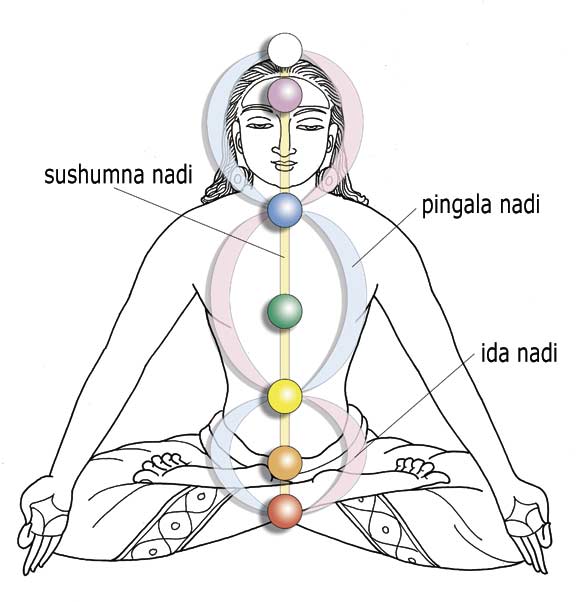Pancha Prana and its relation with 7 chakras
In Sanskrit, Pancha Prana means vital power. It’s called chi, ki, mana, and other things, but it’s all different. Prana also play a role in physical restrictions, but we’ll get to that later. There are a lot of buzz phrases in the spiritual realm right now. Ancient yogic philosophy clearly explains what these things are and why they are still important to you, even though many individuals who talk about them seem to be floating in their worlds.
What Are the 7 Chakras?
There are 114 points where the nadis meet. The nadis are the energy body’s conduits for the flow of Pancha Prana, or life force energy. These intersections are usually triangular. As chakra means wheel or circle, they are named after the Sanskrit word for movement between dimensions. On closer inspection, they’re triangles. There are 114 chakras, just two of which are located outside the body. Only 109 of the remaining 113 can be worked on, with the remaining four simply blossoming.
We’ve seen the appearance of this number in the human system since it’s an important number in how we created our solar system. The distance from the sun to the Earth is 108 times larger than the sun’s diameter. The earth-moon separation is 108 times greater than the moon’s diameter. The sun’s diameter is 108 times larger than the Earth’s diameter. As a result, the number 108 is used in various spiritual rituals of Pancha Prana.
The Location And Names Of The 7 Chakras
When a baby is born, there is a soft area at the top of the head. We may talk about lower and higher energy centers, but this vocabulary is frequently misconstrued and is not always accurate. Using this analogy it’s like comparing a building’s base to its roof. The base is more important than the top. The building’s floor is more important than its top.
The foundation is much more important than the roof for a building’s overall quality, lifespan, stability, and security. However, from a linguistic perspective, the top is higher, and the bottom is lower. Seven primary chakras are Muladhara, swadhisthana, Anahata, vishuddhi, and Sahasrara, also known as brahmarandra, all located in the lower abdomen.
Various Elements of the Body’s 7 Chakras
These Pancha Prana chakras have a physical expression. A more subdued word is also possible. They are referred to as kshetras when they occur. It is a location where a person lives. Even if you’re at your business, your home isn’t far away. In the same way, there are exterior kshetras known as bahya kshetras and inside kshetras known as Antar kshetras. There is a place to live and a place to vacation!
When you’re alone in your house, you’ll be yourself. You spend your time and energy on the banal. Cooking, cleaning, maintaining, and mending things take up much of your time. Even while there is cooking, cleaning, and all the rest when you travel to your vacation home, you don’t spend your whole time Pancha Prana there. It’s a more joyful way of life.
What are some of the ways Pancha Prana manifests itself?
As the word chakra implies, these are points in the subtle body where nadis meet. It’s easy to guess how many chakras the body has, given the 72 000 nadis. There are, however, seven primary chakras in all. The three major nadis, Ida, Pingala, and Sushumna, cross six times in the body. Each of these six sites corresponds to one of the body’s major chakras. Supreme happiness is found at the top of one’s head in the seventh chakra Pancha Prana.
A beej mantra (a vibrational signature) and a particular emotional manifestation go hand in hand with each chakra, and each plays a distinct function in our life. Priyadhara to Sahasrara Pancha Prana is the symbolic path of human existence from heavy immobility and attachment to dispassion, divinity, and highest happiness, as discussed before.
The further you move up the chakra system, the stronger the good emotions that correlate to each one. As one descends from Sahasrara to Mooladhara, Pancha Prana, the negative feelings intensify.
